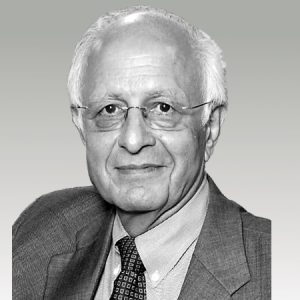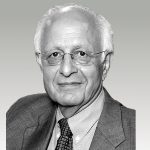
Arun Maira
Guest is known for...
Arun Maira is a former member of the Planning Commission of India, former Chairman of BCG India, and a distinguished business leader with a career at Tata Motors. He had to reinvent himself at 45 when he relocated to the US due to a personal situation. He is the author of several books, including the recent one “Listening for well-being: Conversations with people not like us”.
Here's what I will learn...
In the conversation, Arun Maira talks about his career transitions and how he settled into the world of Advisory Services. He discusses his book on Listening and its impact on various domains, including the art of asking deeper questions, how we could steer through listening, and how we can have tough conversations by listening.
LISTEN TO THE FULL CONVERSATION
From the Podcast
Arun talks about how we could potentially move from understanding the data that somebody presents to us to going deeper in our understanding around why that data is important to the other person and how their experiences have led them to value what they value. He suggests that moving from the What to the Why and the How enables us to get to the next level of insight and intimacy with another person, especially if they are unlike us.
Arun discusses his definition of a leader – “she or he who takes the first steps towards something that she or he deeply cares about and in ways that others wish to follow”. He talks about the criticality of listening to what other people care about as a key element of building engagement and followership.
Arun talks about insights from Dalai Lama (who also wrote the foreword for his book) who says that Listening is the first wisdom tool and it is a prerequisite for reflection, compassion and self-knowledge. Arun discusses why it is important to create a space for the feedback to land on the other side and listening is the path to creating that space.
Arun talks about how the depth of insight and intimacy gets compromised when we start having conversations across a large number of people. However, he shares his insights around how we could still make such conversations enriching by moving from the layer of data to the layer of how people form their opinions on the data.
Arun talks about how one must be clear about how one should think about structuring a meeting/conversation. He also suggests different formats depending on different depths to which we wish to go in the conversation. He makes the distinction between discussion, debate, deliberation and dialogue and urges us to be clear about what to use when.
Arun talks about how values play an important role in how we build a sense of judgment on situations. He specifically presents the opposing perspectives of two views. 1) Utilitarian view 2) Individual rights view. He goes on to talk about the importance of tailoring our approach to the specific context rather than being binary about it.
Arun talks how we might not be feeding our “thinking slow” part of the brain enough (using the phrase made popular by Nobel Prize winning Economist – Daniel Kahneman). He talks about how people now have greater reach in connections but with often diminishing levels of richness. He quotes some recent studies where brains of children have shown to be influenced by this and how this is impacting several areas including how we feel about ourselves, our attitudes and empathy. He re-emphasizes the power of having reading as a habit to further build the muscle of “Thinking Slow”.
Arun talks about the downsides of being a good listener and says that sometimes, it might be harder for people to notice you given the noise around them. He also goes on to talk about how sometimes, we embark on a path of making some noise (through marketing, branding etc.) to be heard but he says that sometimes that path changes who we are in the process and by the time we get to the point where we are being heard, we may not be the same listeners any more that we were when we started out. He quotes Sir John Dalberg-Acton and says that “Power tends to corrupt, and absolute power corrupts absolutely”.
Arun talks about how he was a cross-roads when he had to move from a successful stint as an executive in Tata Motors to a role as a consultant with Arthur D Little in the United States. He talks about the circumstances in which he took the decision (including a nudge from JRD Tata) and how he had to adjust his style to be effective in a new professional and cultural context. It is not very often that you see a leader transition from being a Business Leader to a Business Consultant.
Arun talks about how one can listen to build credibility in a new context, especially if you are in a situation where you feel you do not have the capabilities on Day 0. He talks about how he learnt from Sumant Moolgaokar by watching him interact with people across hierarchies including how he would engage with the gardener. He shares that it is critical that we move from a “I will teach” to a “I will learn” mindset when you move to a new context.
